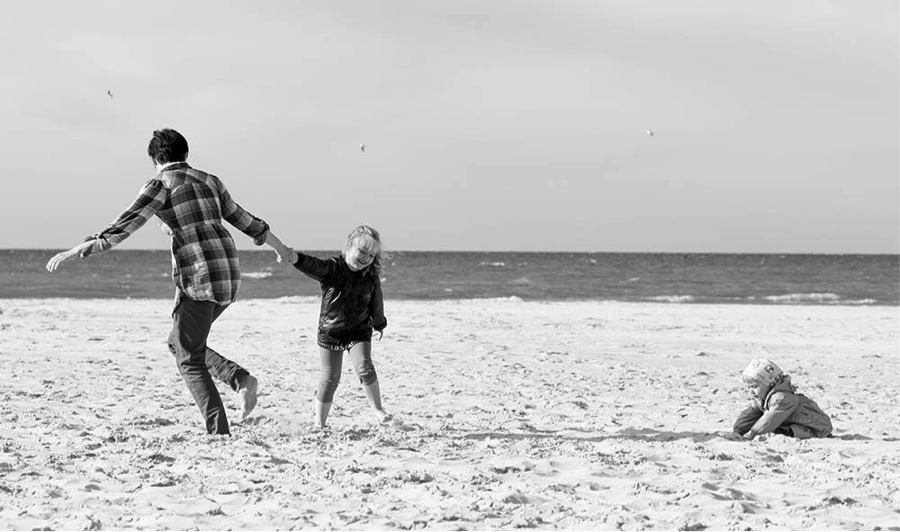Sometimes things creep up on you. Like dust on a table that is invisible, until it isn’t. Until you turn around and think, “Damn, I should really clean that table.”
Those “bam” moments hit you like a brick bag full of the things you always knew existed but somehow forgot to give importance.
I had that moment the other day. But the beautiful thing about this moment wasn’t the sudden shock of awareness. Instead, it was how I received this realization. Within the course of two days, three people (some friends and some strangers), all told me the same thing, each in a distinct way. Everyone was repeating the idea that letting things fall away was a necessity. I heard:
“You can’t do everything.”
“When you let things go, what stays is what matters.”
“Sometimes choosing a niche is the only way to be heard.”
It was as if these people had coordinated their timing to give me a wake-up call. Three soft reminders amplified to one loud beep of an alarm. But instead of being annoyed by the sound, I felt a pervading sense of relief, a relief that came from understanding that all of my thoughts and worries around this subject now had a place to rest. I took peace in this permission to let things fall away.
All of this got me thinking about an idea that’s been floating around my mind for a long time now. It’s a blog post that’s been half-started, saved as a draft and forever lingering on my to-do list. I wanted to talk about consistency, repetition and routines. I wanted to talk about how the older we get, the tendency is to let the monotony of life and our busy work schedules suck what I like to call the “bright-eyedness” out of us. Our naiveté hardens into jadedness, and our minds become heavy with those “adult” things we once deemed ourselves immune.
All of these thoughts bubbled up one night as I found myself sitting on the floor of a loft, looking on as jazz dancers moved with careful abandon. Watching their free-form movements made me painfully aware of how most adults would never consider putting themselves out there in that way (myself included).
It seems the older we get, the more people say they can’t do something. “Oh, I can’t dance” or “I could never do something like that” escape the tongue like steam from hot coffee. “Don’t press me further” is the implied meaning behind the brush-off statement. It seems we are all holding back and selling ourselves short. We start specializing our abilities, just as we specialize ourselves in our careers. Before we know it, our fluidity becomes trapped in a rigid box of our own creation.
 Photo by Agnes Fox Photography
Photo by Agnes Fox Photography
But it doesn’t have to be like that, and, of course, it’s not always like that. (Yes, some lovely people escape the “adult-trap,” scot-free. And yes, I’m the first to admit I’m generalizing here). One example sticks out for me: think about when you are with a child. You will dance and sing to entertain and make fun with the kid. All traces of self-consciousness melt away, and you’ll dance and play with no thought of your outer appearance. It always makes me wonder why it isn’t as easy to carry that unrestrained joy into adult relations.
Perhaps it’s because every voice and movement is pretty to a child, however; the experiences that bring us to adulthood tell us that a voice or a movement must look or sound a certain way. These ideas heighten our judgments, of both ourselves and others.
I wanted to write about this concept for a long time. But the problem was I didn’t know how to conclude it or how to make it interesting. I felt like it was over-done. Keep your inner-child alive, don’t limit yourself bla di da da. We’ve all heard it before. Who cares?
But now I see that it’s not about the negative side of these constraints. It’s not about blaming our daily responsibilities for a less youthful spirit or a more controlled way of carrying ourselves in the world. Maybe it’s about realizing that sometimes the consistency and persistence of things are why they’re so impactful. If I hadn’t heard the message: “let things fall away” repeated to me three times, it would have flown beneath my radar, and I would never have felt the peace that came from hearing it.
I’d like to look at other forms of repetition in the same way. Because, undoubtedly, the routines of adulthood can make us weary. But the commitment of choosing to do something and work towards it everyday frees us. If we can’t harness our mental powers and creativity towards one goal, then we are left floating and scattered. We become immobile, paralyzed by options.
When we think of our patterns and commitments fondly, then we can make room for more space and movement within them. And maybe, eventually, we can make that movement more than just a concept, and bring it into the physical. If our life is ours for the choosing, then our obligations aren’t bars but simply guides that move us forward and allow for release.







